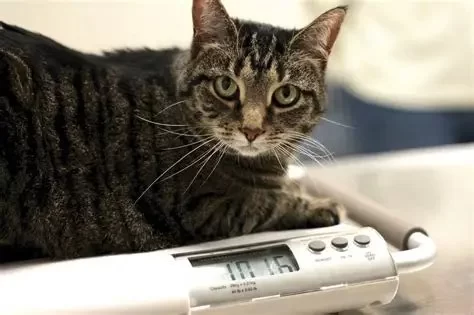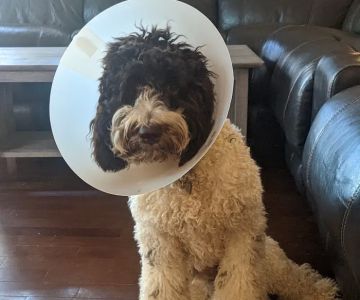1. Understanding Feline Weight Loss
Feline weight loss is a serious concern that every cat owner should be aware of. Cats may lose weight for a variety of reasons, from changes in diet to more severe underlying health conditions. Understanding the causes and symptoms of weight loss in cats is crucial for addressing the problem promptly. In this article, we’ll explore how to recognize and treat feline weight loss, ensuring your pet stays happy and healthy.
2. Common Causes of Weight Loss in Cats
Before diving into treatment, it's important to understand the potential causes of weight loss in cats. Feline weight loss is often a symptom of an underlying issue, and recognizing the root cause is the first step toward treatment.
2.1 Diet and Nutrition
One of the most common reasons for weight loss in cats is poor diet or inadequate nutrition. Cats may stop eating due to a lack of appetite, picky eating habits, or a change in their food. Additionally, a diet that doesn't meet their nutritional needs can lead to gradual weight loss.
2.2 Illnesses and Diseases
Several medical conditions can cause weight loss in cats. Some of the most common include:
- Hyperthyroidism – A condition where the thyroid gland produces too much thyroid hormone, leading to increased metabolism and weight loss.
- Diabetes – Cats with diabetes may lose weight despite an increased appetite, as their body can't properly absorb nutrients.
- Kidney Disease – Chronic kidney disease is a common condition in older cats that can lead to weight loss, dehydration, and loss of appetite.
- Gastrointestinal Issues – Conditions like inflammatory bowel disease (IBD), parasites, or cancer can affect digestion and absorption, leading to weight loss.
2.3 Stress and Anxiety
Stress can also play a significant role in a cat’s weight loss. Changes in environment, new pets or people in the house, or other disruptions can cause stress that leads to reduced appetite or overeating in some cases.
3. Recognizing the Signs of Weight Loss in Cats
Recognizing weight loss in your cat early can help you take prompt action to address the issue. Cats are known for hiding symptoms, so it's essential to look for subtle signs of weight loss. Here’s how you can spot it:
3.1 Visible Changes in Appearance
One of the first signs of weight loss in cats is a change in their body shape. If your cat’s ribs, spine, or hip bones become more prominent, it’s likely that they are losing weight. You might also notice that their coat looks thinner or duller than usual.
3.2 Decreased Appetite
A decrease in appetite is a common sign that something is wrong. If your cat is eating less or not eating at all, it could indicate weight loss due to illness or stress.
3.3 Behavior Changes
In addition to physical signs, pay attention to any changes in behavior. Cats that are losing weight may become lethargic, irritable, or hide more than usual. They might also be less active or avoid playing and interacting with family members.
4. Treatment Options for Feline Weight Loss
Once you've identified weight loss in your cat, it’s time to take action. Treatment will depend on the cause of the weight loss, but there are several general approaches that can help your cat regain a healthy weight.
4.1 Improving Nutrition
The first step is often adjusting your cat’s diet. Ensure they are eating high-quality, nutrient-dense food appropriate for their age and health condition. If your cat is picky, try offering different types of food, such as wet food or treats with higher fat content. Consult your vet for recommendations on the best diet for your cat.
4.2 Medication and Medical Treatment
If your cat’s weight loss is caused by a medical condition such as hyperthyroidism, diabetes, or kidney disease, medication or specific treatments may be necessary. For example, medication for hyperthyroidism or insulin injections for diabetes can help control symptoms and stop weight loss. Your vet may also suggest fluids or special diets to support kidney function.
4.3 Managing Stress
If stress or anxiety is the underlying cause of weight loss, try to eliminate the stressors in your cat's environment. Provide a calm, quiet space for your cat to eat and rest, and consider using pheromone diffusers or anxiety-reducing supplements. In some cases, your vet might recommend behavioral therapy or prescription medication to manage stress.
5. When to Seek Professional Help
While minor weight loss may be manageable at home with dietary adjustments, it’s essential to seek professional help if your cat’s condition doesn’t improve or if you notice severe symptoms such as vomiting, diarrhea, or extreme lethargy. A vet can perform diagnostic tests to determine the underlying cause of weight loss and recommend the most appropriate treatment plan.
6. Conclusion: Ensuring Your Cat’s Health
Preventing and treating feline weight loss requires careful attention to your cat’s diet, behavior, and overall health. If your cat is losing weight, it’s crucial to act quickly and consult your vet to address any potential medical conditions. With the right care and treatment, you can help your cat regain their health and ensure they live a long, happy life.
For personalized advice and the best pet care products, check out Hidden Brook Veterinary, where we offer expert recommendations and services tailored to your cat’s needs.












